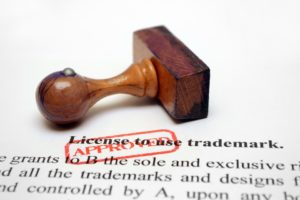Washington State Trademark Rejection? Don’t give up.
by Ammon Ford
Trademark owners often find it useful to register their trademarks with both the state and trademark offices. State trademarks in Washington are registered with the Secretary of State’s office and function almost identically to federal trademarks. Like a federal application, a state trademark application is not guaranteed and the trademark office may reject the application for a myriad of reasons.
One of the most common rejections the state issues is to automatically reject any application for a word if that word has already been registered to another person, regardless of what products or services the two registrations are for. If you applied for a Washington State trademark registration and received a preliminary rejection, you may have options to beat the rejection.
Legally, an application for trademark registration may not be granted if it “so resembles a prior-registered trademark as to be likely to cause mistake or deceive consumers as to the source of those goods.” (RCW 19.77.020(e)) Mistake or deception becomes likely when one trademark so resembles “that of another trader that ordinary purchasers, buying with ordinary caution, are likely to be misled, on ground that one is not allowed to represent goods for sale to be manufactured of another trading in same commodity.” (Jantzen Knitting Mills v. Spokane Knitting Mills, E.D.Wash.1930, 44 F.2d 656.) They need not be exact matches, nor does being exact matches necessarily meet this threshold of being likely to cause mistake or confusion among consumers.
In comparing two trademarks to determine whether there is a likelihood of confusion, mistake, or deception between two marks, the state will consider all relevant factors, with particular emphasis placed on the similarity of the marks, the similarity of the goods or services, similarities in the channels of trade and the manner of sales, among other statutory factors. (RCW 19.77.140(2))
Due to the automatic rejection policy for matching words, the state occasionally issues rejections against applications that do not meet this legal threshold under the relevant criteria. If we can compare the trademarks and demonstrate that the two are not likely to lead consumers to a mistake or to be deceived then they may both be registered by the state. Overcoming rejection often merely requires a skilled legal analysis carefully written to help the examiners see justice in making an exception to their general rule.

